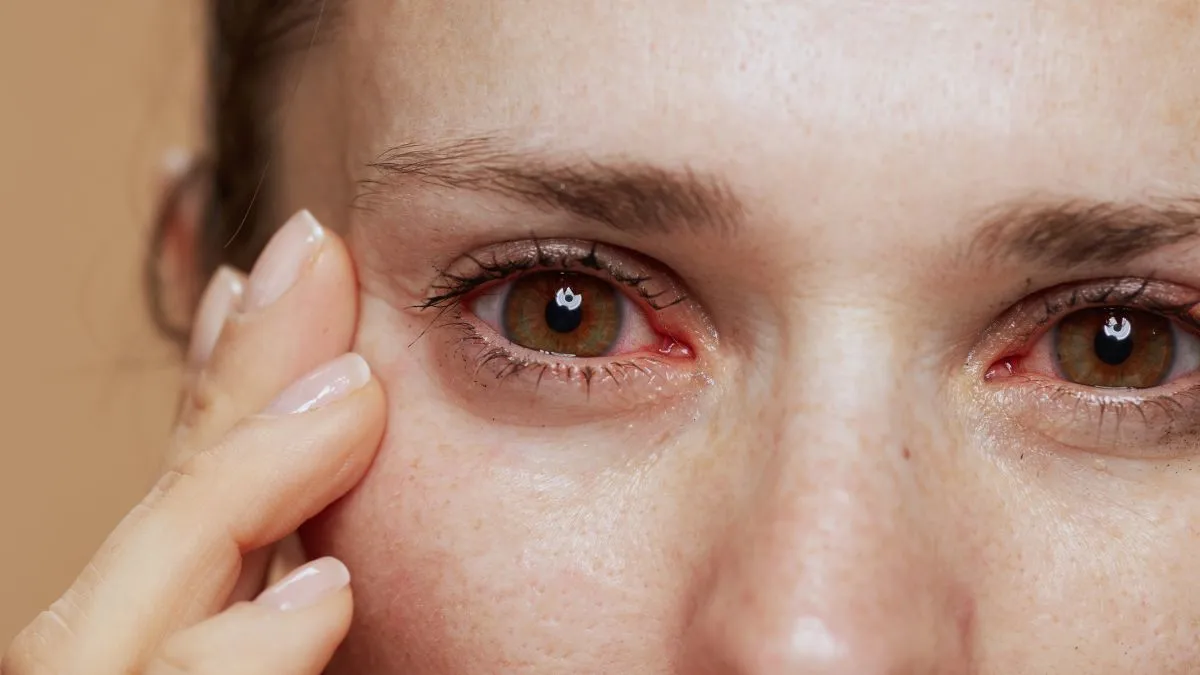- By Bornika Das
- Fri, 29 Aug 2025 08:22 PM (IST)
- Source:JND
Rinsing with tap water might be harmless or even refreshing for most of us. But physicians warn that this simple routine can put our eyes at risk from a secret threat: Acanthamoeba, a microscopic parasite. Present in water, soil, and even air, this parasite is generally harmless to the overall body but can lead to extreme eye infections when it comes into contact with the cornea, particularly for individuals who wear contact lenses. The infection, Acanthamoeba keratitis, is uncommon but very painful, hard to treat, and can even result in permanent loss of vision if left undiagnosed.
The threat usually goes undetected since most individuals do not know that swimming pools, showers, or even tap water can be infested with these parasites. Eye experts say that poor lens hygiene, such as soaking or washing contact lenses in tap water, is the most frequent port of entry for infection. What makes Acanthamoeba most problematic, however, is its durability; it can withstand routine chlorination and thrive under extreme conditions, making prevention the most important line of defence. In conversation with The Daily Jagran, Dr Neeraj Sandhuja - Ophthalmologist and Founder of Viaan Eye And Retina Centre, warns about the hidden Acanthamoeba risk.
That's why physicians emphasise employing sterile solutions and adhering to rigorous eye hygiene measures to protect vision.
Key facts About Acanthamoeba And Eye Infection
What Is Acanthamoeba?
Acanthamoeba is a microscopic, free-living amoeba found in:
Tap water
Lakes, hot tubs, and swimming pools, especially if they are poorly chlorinated
Soil and air
ALSO READ: Red Eyes In Rain: How Monsoon Triggers Eye Infections And What To Do? Doctor Insights
How Does It Cause Infection?
It can cause Acanthamoeba keratitis, a rare but serious infection that affects the cornea. This infection can lead to permanent vision loss or blindness if not treated properly.
Main Risk Factors
Wearing contact lenses, especially:
Rinsing them with tap water
Showering or swimming while wearing lenses
Improper cleaning or storage
Having corneal trauma or scratches
Poor eye hygiene
Is Tap Water Safe For Eyes?
Tap water in developed countries is treated, but it is not sterile. Acanthamoeba can survive in treated tap water in a dormant cyst form.
Occasional exposure to tap water, like during a shower or when washing your face, is low-risk, but:
Avoid direct exposure of your eyes to tap water if you wear contact lenses or have a corneal injury.
-1756479068300.jpg)
Acanthamoeba Eye Infection (Image Credits: Canva)
How To Reduce Your Risk Of Acanthamoeba
Never rinse contact lenses with tap water
Don’t swim or shower with contact lenses in
ALSO READ: How To Wear Contact Lenses Safely During Monsoon? Here's What Doctor Wants You To Know
Use only sterile, commercially prepared lens solutions
Wash your hands thoroughly before handling lenses
Yes, tap water can carry Acanthamoeba, and exposure through the eyes is possible, especially if you wear contact lenses or have eye trauma. For most people, the risk is low, but contact lens wearers need to be particularly careful.
